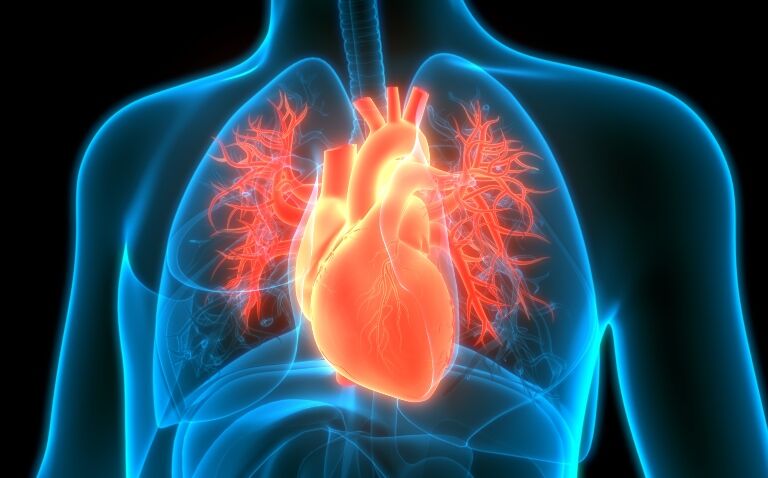Use of a high-sensitivity cardiac troponin I assay in emergency departments can improve diagnosis for one in five patients who have acute coronary syndrome, according to new research led by the University of Edinburgh.
The assay also helped doctors to better diagnose and treat these patients, reducing death and future myocardial infarction in this group by almost 10% after five years compared to those who received the older, less sensitive test.
The researchers also found that while the new cardiac troponin assay led to improvements for patients with myocardial infarction, those who benefitted most were patients with a heart muscle injury caused by conditions such as heart failure, heart valve conditions and heart arrhythmias.
Published in the BMJ and funded by the British Heart Foundation, the researchers conducted a secondary observational analysis of the High-Sensitivity Troponin in the Evaluation of patients with suspected Acute Coronary Syndrome (High-STEACS) trial.
High-STEACS used a high-sensitivity cardiac troponin assay to improve precision at very low concentrations and improve the diagnosis and risk stratification of patients with suspected acute coronary syndrome.
While these assays are increasingly being adopted worldwide, little is known about their impact on patient outcomes.
For the secondary observational analysis, researchers studied the results for nearly 50,000 people who arrived at 10 emergency departments across Scotland with a suspected acute coronary syndrome between 2013 and 2016. They used routinely collected health record data and the data service DataLoch to follow up all participants for five years.
The primary outcome was any myocardial infarction or all-cause death at five years.
Secondary outcomes were any myocardial infarction; coronary revascularisation; all-cause death; cardiovascular death; cardiac death; and hospital admission for heart failure, ischaemic stroke, and major haemorrhage.
Over 10,000 patients had high troponin levels indicating heart injury using the new cardiac troponin assay, with one in five of these patients only identified by this high-sensitivity assay.
The researchers also observed that improvements in outcomes at five years were greatest in those patients with an index diagnosis of non-ischaemic myocardial injury.
Dr Ken Lee, clinical lecturer in cardiology at the University of Edinburgh, and the lead author of the study, said: ‘In the past, clinicians could have been falsely reassured by the results of the less sensitive troponin test, discharging patients that appeared to not have heart disease.
‘This new high-sensitivity test is the tool they needed, prompting them to look deeper and helping them to identify and treat both heart attacks and less obvious heart problems. In our trial, introducing this test led to an impressive reduction in the number of future heart attacks and deaths seen in this at-risk group.’
Professor Sir Nilesh Samani, medical director at the British Heart Foundation, added: ‘Medical professionals in emergency departments need the most efficient and accurate tools to look after people. This particularly applies to those who arrive with a suspected heart attack. Such a time-sensitive and life-threatening condition requires the very best diagnostic tests.
‘It is very encouraging to see that the new test trialled here is better at predicting long-term outcomes for these patients, whether they had a heart attack or a different kind of heart injury. This can lead to improved care for such patients.’
The new high-sensitivity cardiac troponin assay has been rolled out to emergency departments across the UK, and the researchers hope that more people will receive the specialist heart care they need to avoid more serious events in the future.










